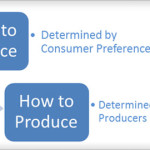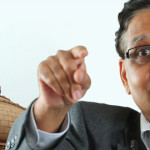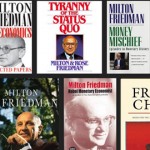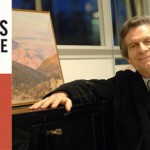
Does the European Union Strive for a Free Market Economy?
The 21-year old European Union has been a lightning rod of controversy, following the unwillingness of Ukrainian President Viktor Yanukovych to sign the agreement with them. Additionally, since Iceland’s withdrawal of its membership,

Resource Allocation in a Free Market: Is it Better?
Resource allocation refers to the way in which resources are distributed to produce various goods and services. One of the key characteristics of a free market economy is that all resources are privately owned.

What does the Free Market Economist Arvind Panagariya Plan for India?
According to an article in The Hindu, published on January 13, 2015, Arvind Panagariya became the first Vice-Chairman of the Niti Aayog.

What Power does the Free Market Hold?
“Our society is what we make it. We can shape our institutions,” says Milton Freidman in his book, Free to Choose.

Steve Jobs: An Inimitable Entrepreneur
Steven Paul Jobs, better known as Steve Jobs, is perhaps aptly described as one of the finest innovator-cum-entrepreneurs

Charles Koch: In Relentless Pursuit of Free-Markets
Charles de Ganahl Koch succeeded to his father’s modest oil company in 1967 – Rock Island Oil and Refining. In the subsequent three decades, he managed to turn the company into a large shiny

Sheldon Richman: His Beliefs and Contributions
An American writer, Sheldon Richman, is the vice president of The Future of Freedom Foundation (FFF) as well as the editor of the monthly journal of the FFF,

The Life and Works of Milton Friedman
Milton Friedman headed the Chicago School of Economics, and was the honoured recipient of the Nobel Prize in Economic Sciences in 1976. This American economist

Book Review: Economics Does Not Lie by Guy Sorman
Guy Sorman makes a persuasive argument that the free market system has indeed led to an improvement in the living standards of “millions,” in his book Economics Does Not Lie,
 Rakesh Wadhwa. Ever since, I was a school boy, I knew India was on the wrong path. Socialism was just not what we needed to get ahead. Government controlled our travel; government controlled our ability to buy and sell; and government controlled our freedom to move our money. My life has focused on the inherent rights people have. When I was in college, I never understood, what the governments meant by their "socialistic attitude". If people are free to buy, sell and move their capital themselves without any restrictions by state, then the welfare of people is inevitable & hence the countries they live in will become wealthy. The government has no right whatsoever, to point a finger at me or my business. I am not a revolutionary. I just want to light up my cigarette and not get nagged about it. I believe in non-interfering attitude to attain more.
Rakesh Wadhwa. Ever since, I was a school boy, I knew India was on the wrong path. Socialism was just not what we needed to get ahead. Government controlled our travel; government controlled our ability to buy and sell; and government controlled our freedom to move our money. My life has focused on the inherent rights people have. When I was in college, I never understood, what the governments meant by their "socialistic attitude". If people are free to buy, sell and move their capital themselves without any restrictions by state, then the welfare of people is inevitable & hence the countries they live in will become wealthy. The government has no right whatsoever, to point a finger at me or my business. I am not a revolutionary. I just want to light up my cigarette and not get nagged about it. I believe in non-interfering attitude to attain more. 
 The Bastiat Award is a journalism award, given annually by the International Policy Network, London. Bastiat Prize entries are judged on intellectual content, the persuasiveness of the language used and the type of publication in which they appear. Rakesh Wadhwa won the 3rd prize (a cash award of $1,000 and a candlestick), in 2006.
The Bastiat Award is a journalism award, given annually by the International Policy Network, London. Bastiat Prize entries are judged on intellectual content, the persuasiveness of the language used and the type of publication in which they appear. Rakesh Wadhwa won the 3rd prize (a cash award of $1,000 and a candlestick), in 2006.
What the readers are saying…